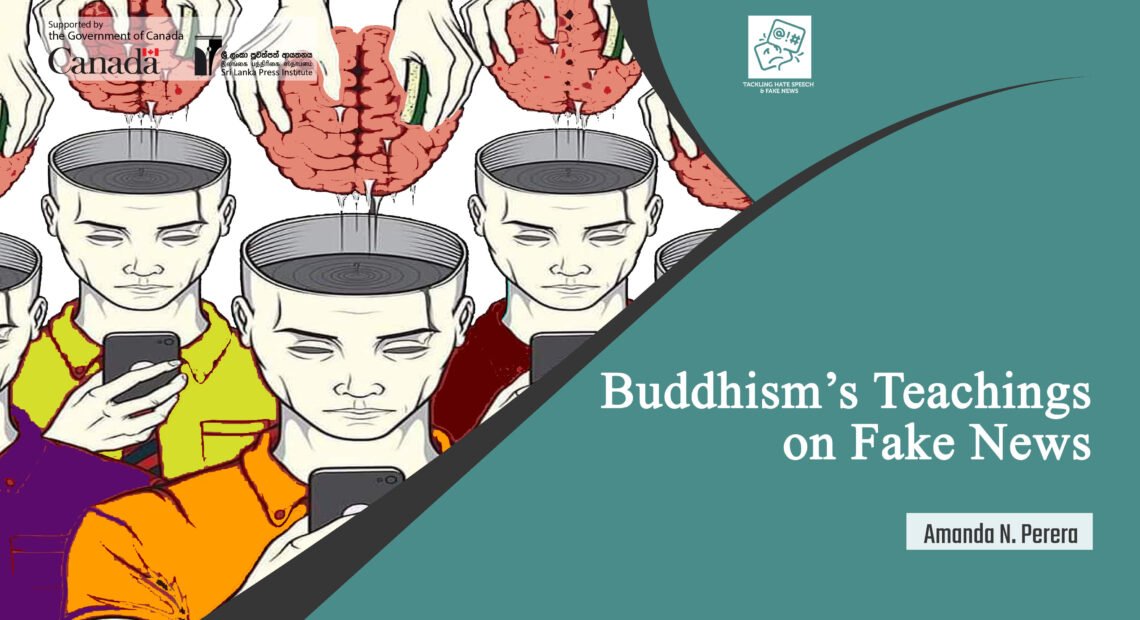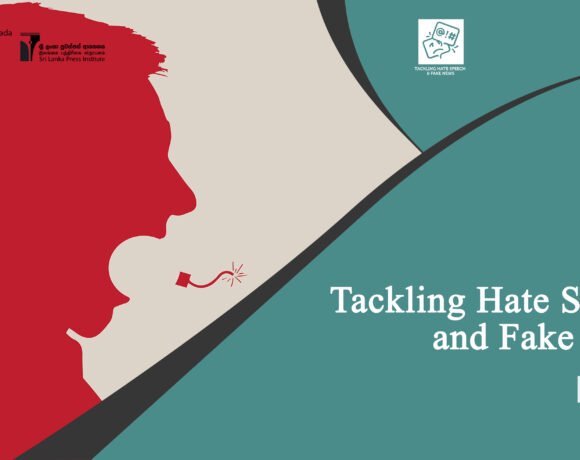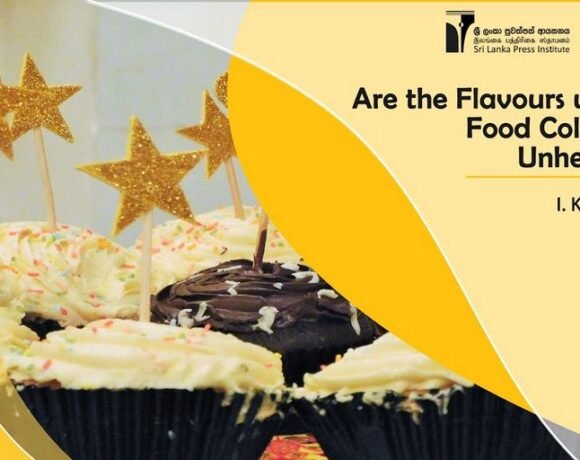
Buddhism’s Teachings on Fake News
Amanda N. Perera
Dissemination of Fake News has a deep archive. Anything from “Vidane vomited seven crows” to “poison mixed into waterways by extremists” is fake news. News is synonymous with credible reports, announcements, and press releases. But this is not always the case. The government has issued myriad legal guidelines on tackling fake news. Doing so is essentially a protection-based approach. Why don’t we try an empowerment approach? (A bottom-up approach) We can then reach people at the grass-root level and teach them the repercussions of creating, listening, and accepting fake news.
By nature, humans love conflict and curiosity. People are always in dire need of information; we thirst for it. Observe how fast, inquisitive stories provoking diabolical thoughts and attitudes go-round over informative articles on e-waste challenges to the environment.
There is a biological and psychological motivation behind creating, spreading, and accepting fake news without reasoning. One could initiate and be a source of fake news due to profit, attention, or indirect benefits. Sometimes, there could be no purpose at all, which makes the argument for needing to reach out to and educate people first and foremost. Sometimes, data could be valid, but language doesn’t make sense specifically when translated, creating a fake data set.
Sri Lanka comprises a Buddhist majority and people respect religion above all. Has Buddhism got a word on fake news? Does Buddhism have an interpretation or teaching on Fake News? The origin of the philosophy was about finding the eternal truth in a world full of figments. Religious teachings infuse people with optimism. Siddhartha, seated beneath the Bodhi Tree, became Gautama Buddha after comprehending life’s reality and achieving “enlightenment”. Gautama Buddha preached these golden words 2500+ years ago, and its relevance is uninterrupted. These words are neither complex nor recondite.
“It is proper for you, Kalamas, to doubt, to be uncertain; uncertainty has arisen in you about what is doubtful. Come, Kalamas. Do not go upon what has been acquired by repeated hearing; nor upon tradition; nor upon rumor; nor upon what is in a scripture; nor upon surmise; nor upon an axiom; nor upon specious reasoning; nor upon a bias towards a notion that has been pondered over; nor upon another’s seeming ability; nor upon the consideration, ‘The monk is our teacher’ Kalamas, when you yourselves know: These things are bad; these things are blamable; these things are censured by the wise; undertaken and observed, these things lead to harm and ill,’ abandon them.”
These expressions were preached by Gauthama Buddha in the Kalama Sutta as a reply to Kalamas; inhabitants of Kesaputta when asked, “Which of these reverend monks and brahmins spoke the truth and which falsehood?” They had doubts and uncertainty on doctrines explained by various monks who visited Kesaputta.
If we chip this into a rudimentary definition, generating fake news is lying. You could be lying to yourself and the circle of people around you. Currently, one’s circle amounts to 1000+ with quick access to social media. That means you are misleading a whole community. Gautama Buddha was strict on truth. It is accentuated by the discourse Ambalatthika-rahulovada Sutta delivered to Ven.Rahula. (Son of Siddhartha alas Gauthama Budhdha)
Sri Lankan Buddhists may have learned the consequences of fabrication at kindergarten, focusing on a narrative layer of “Don’t lie” or “Lying is bad”. We can take these lessons on a broader scale setting up a dialogue with faith-based organizations and religious leaders. Workshops on tackling fake news are inadequate if it only addresses the legal framework. On 15th November 2020, a 28-year-old man was arrested for publishing fake news on social media claiming that many people were found dead on Sri Lanka roads due to Coronavirus. Shouldn’t we now attempt a distinct approach to tackle the problem? Psychologically people are petrified of the reverberations of crime when they are taught; that’s what keeps up our society’s discipline to this level. Wouldn’t religious teachings that are dear and near to people be a healthy game plan to combat fake news too?








